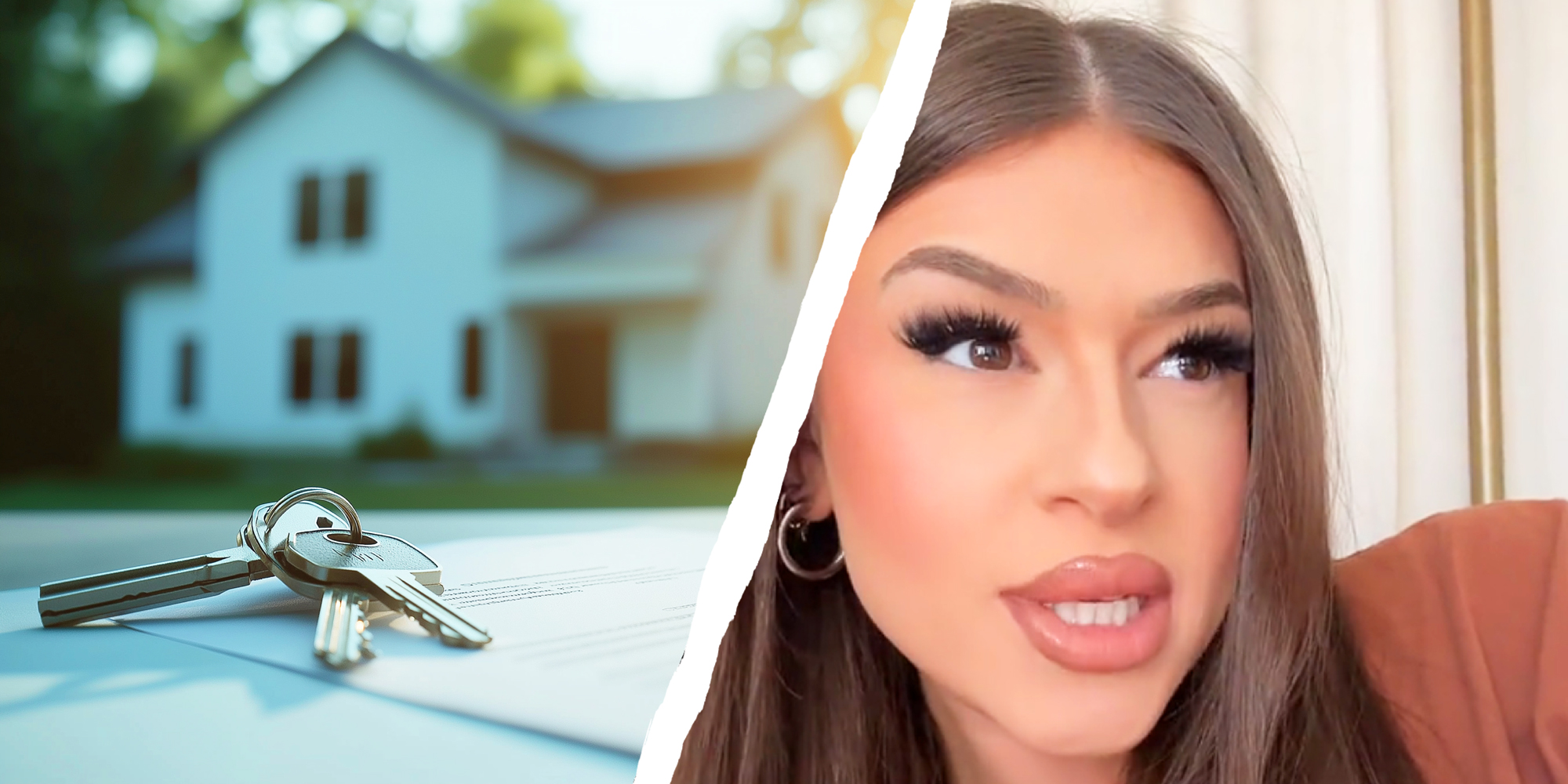Fashion expert Gabi Daiagi (@gabidaigi) posted a viral clip where she regrets buying a home. That's because of the numerous unforeseen repair costs associated with her abode. She listed them in her video, which has accrued over 462,00 views as of Saturday.
Not a fan of owning
"If you're a 20-something-year-old person please listen to this video," Daiagi begins before listing all the repairs she had accrued. They are as follows:
- Air conditioning unit. "Which was $6,500."
- A new washing machine. "Which was $1,200."
- Replace the shower, "which I won't be doing for a while. Because that's probably like $10K."
- The floors. She says, "They need to be replaced because the wood, the wood is rotting. It's just rotting. That's probably like $10--$15K, right?
- Last but not least, her sink. "And my sink this morning just broke. So it flooded my bathroom."
She concludes, "So the next time someone tells you that you should be a homeowner. And that should be your biggest goal, tell them to go [expletive] themselves."
Know what and where you're buying
There's a reason why realtors tell folks that "location, location, location" matters most when purchasing properties. Purchasing a home in an area with gradually increasing land values is a smart move. That's because if you ever decide to sell, you'll be able to sell your home for a profit, which can offset the costs of the home that you bought.
Furthermore, one should always ensure a home is properly inspected before buying it. This way, you can get an idea of any immediate fixes you'll need to attend to before purchasing. Additionally, you can use any of these potential fixes as a negotiation tool to drive down the asking price of the home.
Benefits of renting
Depending on how adept your leasing company or landlord is at fixing issues, one main benefit of renting is not having to worry about repairs. If a building has a pest problem or a water pipe bursts, the roof is leaking, etc.—those repairs fall on the property owner. Moreover, depending on your area's tenant's laws, you can withhold payments or put them in escrow until these issues are addressed.
The downside, is, however, that landlords can gradually jack up the cost of your rent. Furthermore, when you move out, it's not like you can retain any of the equity that you put into the unit you're living in. You're effectively paying off someone else's mortgage.
Consequently, if you're looking to purchase a home, don't opt for a mortgage that is tantamount to what you're paying in rent. This way, you can put away some money in a high-yield interest savings account. These funds can be dedicated to upgrades and maintenance for your home. If this "maintenance fund" ends up being more than what you need for necessary repairs, you can use the added money towards the principle of your loan.
Co-ops/condos
However, if both of those aforementioned options don't sound like appealing solutions, you could ultimately opt for a co-op or condo. Oftentimes, singular maintenance companies will be contracted to overlook all of the units in a complex. Depending on the nature of the contract, these can be highly sought-after jobs.
That's because they provide a steady stream of income. Furthermore, all of the work is isolated in a singular location. This way, contractors can make arrangements with building ownership to house materials and tools for common fixes. This means that any type of repairs are usually quickly attended to, depending on the size of the complex and the efficacy of the company contracted.
But there are drawbacks, as well. Re-assessment costs in condominiums can slap homeowners with additional upgrade costs out of nowhere. This is on top of the monthly maintenance fees associated with their units. Also, condominiums come with property tax fees, which can go up, year after year.
Maintenance/HOA fees
Co-ops also come with maintenance and HOA fees and are structured a bit differently. For one, not all lenders will provide financing for co-operatives, so you'll have to find a business that provides that service. This is more than likely because, with a co-op, you're purchasing shares in a property. Not necessarily the property itself.
Typically, the size of the unit in a co-op situation usually dictates the number of shares an owner receives. This also comes with heftier maintenance fees. Be sure to look up reviews on the management companies and HOAs associated with a co-op you plan on purchasing.
Securing a loan for a co-op that includes utilities, as well as repairs in monthly maintenance fees is possible.
@gabidaiagi I’m not having fun ?
♬ original sound - Gabi Daiagi
Viewers thanked Daiagi
Numerous viewers agreed that homes could very easily become money pits. After all, there's a famous comedy that covers this very phenomenon starring Tom Hanks. And some financial analysts have delineated instances where renting could indeed be better than buying.
One TikTok user penned, "Someone said 'a house is less of an asset, and more of a liability' and isn’t that the d*mn truth."
Someone else said they plan on renting until they acquire a second line of income. "As a single woman…I will rent until I have dual income," they said.
Another person remarked that the reality of home ownership, like Daiagi says, isn't fun. "Owning a home SOUNDS nice but actually owning a home...oh man," they wrote.
But some said there are some precautions buyers can take: "Girl you should report the inspector….that should have all come up during due diligence."
This was a sentiment echoed by another user: "None of this came up in inspections?"
The Daily Dot has reached out to Daiagi via email for further comment.
Internet culture is chaotic—but we’ll break it down for you in one daily email. Sign up for the Daily Dot’s web_crawlr newsletter here. You’ll get the best (and worst) of the internet straight into your inbox.






